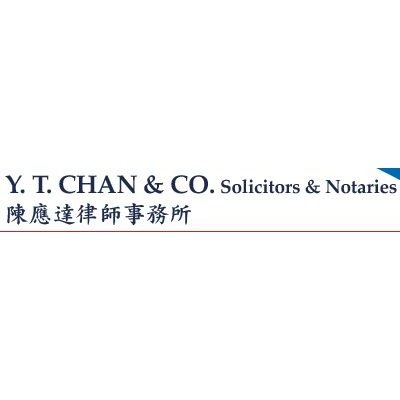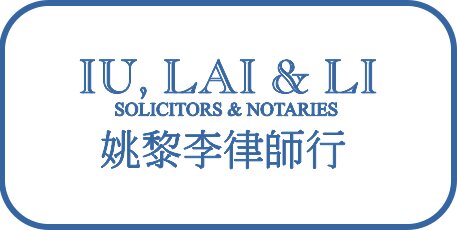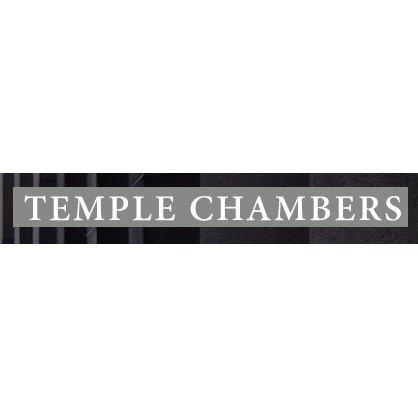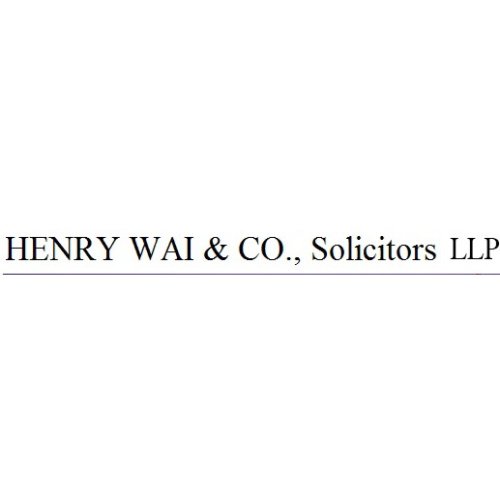Best Structured Finance Lawyers in Admiralty
Share your needs with us, get contacted by law firms.
Free. Takes 2 min.
List of the best lawyers in Admiralty, Hong Kong
About Structured Finance Law in Admiralty, Hong Kong
Structured finance refers to complex financial transactions that are tailored to meet specific needs, often involving the pooling of financial assets and the use of special purpose vehicles or entities. In Hong Kong, particularly in the business district of Admiralty, structured finance plays an essential role in supporting capital markets, cross-border transactions, and corporate financing. The field involves creating legal frameworks and transaction structures for instruments such as asset-backed securities, collateralized debt obligations, syndicated loans, and securitizations. Legal specialists in this area assist with drafting contracts, complying with regulations, conducting due diligence, and navigating the legal and tax implications of complex financial deals.
Why You May Need a Lawyer
Individuals and businesses may require legal assistance in the area of structured finance for several reasons. These include financing large development projects, raising capital through asset-backed securities, structuring debt obligations to improve cash flow, or entering cross-border financing arrangements. Legal issues often arise when parties need to assess the risks involved, ensure regulatory compliance, negotiate terms with counterparties, or resolve disputes related to contractual obligations or insolvency. A lawyer experienced in structured finance can provide valuable advice, ensure documents are properly drafted, manage regulatory filings, and protect your interests in negotiations and disputes.
Local Laws Overview
Hong Kong is well known for its business-friendly environment and robust legal framework, making it a hub for structured finance transactions in the Asia-Pacific region. The following are key aspects of local law that affect structured finance in Admiralty, Hong Kong:
- Regulatory supervision of structured finance is carried out by the Hong Kong Monetary Authority (HKMA), the Securities and Futures Commission (SFC), and other bodies, depending on the nature of the transaction.
- The Securities and Futures Ordinance and the Banking Ordinance are two principal legislations governing structured finance activities, setting out requirements for disclosure, licensing, and conduct.
- The use of special purpose vehicles (SPVs) is common for isolating assets and liabilities, and Hong Kong law provides clear rules on incorporation, governance, and insolvency procedures for these entities.
- Hong Kong is a common law jurisdiction, so common law principles as well as precedent cases play a key role in interpreting and enforcing structured finance agreements.
- Taxation is generally favorable, but structuring considerations must take into account stamp duty, profits tax, and other potential liabilities.
- Cross-border deals must consider conflict of law rules and any applicable overseas regulations, especially for multi-jurisdictional transactions.
Frequently Asked Questions
What is structured finance and how does it differ from traditional finance?
Structured finance involves complex arrangements and special vehicles to manage financial risk, enhance credit, or pool assets, while traditional finance refers to straightforward lending or investment transactions.
What are typical examples of structured finance transactions in Hong Kong?
Common examples include asset-backed securities, syndicated loans, securitizations, collateralized debt obligations, and complex project financing deals.
Who regulates structured finance activities in Hong Kong?
The Hong Kong Monetary Authority (HKMA), the Securities and Futures Commission (SFC), and the Companies Registry are the main regulatory bodies involved.
Do I need a lawyer to set up a special purpose vehicle (SPV)?
It is highly advisable to engage a lawyer as SPV setup requires compliance with local incorporation laws and careful drafting of governance documents.
What are the risks involved in structured finance transactions?
Risks include credit risk, market risk, legal and operational risk, as well as potential regulatory changes that could affect deal performance.
Can foreign entities participate in structured finance deals in Hong Kong?
Yes, Hong Kong allows foreign participation, though foreign parties may need to comply with local incorporation and regulatory requirements.
What are the typical steps in a structured finance deal?
The steps usually include structuring and negotiation, drafting contracts, seeking approvals, setting up SPVs, asset transfer, execution, and ongoing compliance.
How are disputes resolved if issues arise during a structured finance transaction?
Most disputes are subject to contractual dispute resolution mechanisms, such as arbitration or litigation in Hong Kong courts, depending on what the parties have agreed.
Are there specific tax considerations for structured finance in Hong Kong?
Yes, tax implications such as stamp duty, profits tax, and withholding tax should be considered at both the structuring and implementation stages.
How can I ensure compliance with Hong Kong structured finance laws?
By engaging a qualified lawyer familiar with local laws, and by staying updated on regulatory developments through official publications or consultations.
Additional Resources
For further information or support regarding structured finance in Admiralty, Hong Kong, the following organizations and resources may be helpful:
- Hong Kong Monetary Authority (HKMA) - regulates banking and monetary policies.
- Securities and Futures Commission (SFC) - oversees securities and futures activities.
- Companies Registry - provides information on company incorporation and legal compliance.
- The Law Society of Hong Kong - directory of qualified solicitors and law firms.
- Hong Kong International Arbitration Centre - resource for arbitration and dispute resolution.
Next Steps
If you are considering a structured finance transaction or are seeking advice in Admiralty, Hong Kong, start by identifying your objectives and gathering relevant financial documents. Then, consult with a qualified lawyer who specializes in structured finance to assess your needs and legal requirements. Ensure the lawyer is experienced with local regulations and has a strong track record in handling complex financial transactions. Where possible, prepare questions about the specific aspects of your deal and be ready to discuss your goals. Your legal advisor can then guide you through structuring, documentation, regulatory compliance, and risk management, ensuring your transaction proceeds smoothly and securely.
Lawzana helps you find the best lawyers and law firms in Admiralty through a curated and pre-screened list of qualified legal professionals. Our platform offers rankings and detailed profiles of attorneys and law firms, allowing you to compare based on practice areas, including Structured Finance, experience, and client feedback.
Each profile includes a description of the firm's areas of practice, client reviews, team members and partners, year of establishment, spoken languages, office locations, contact information, social media presence, and any published articles or resources. Most firms on our platform speak English and are experienced in both local and international legal matters.
Get a quote from top-rated law firms in Admiralty, Hong Kong — quickly, securely, and without unnecessary hassle.
Disclaimer:
The information provided on this page is for general informational purposes only and does not constitute legal advice. While we strive to ensure the accuracy and relevance of the content, legal information may change over time, and interpretations of the law can vary. You should always consult with a qualified legal professional for advice specific to your situation.
We disclaim all liability for actions taken or not taken based on the content of this page. If you believe any information is incorrect or outdated, please contact us, and we will review and update it where appropriate.















